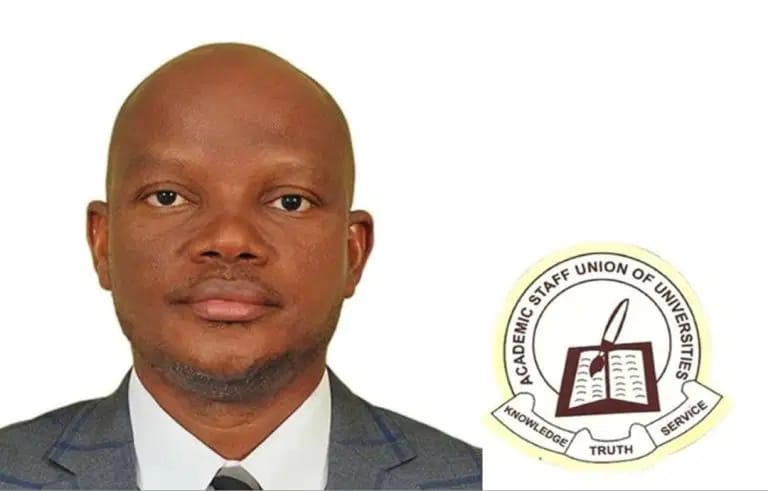In a recent statement that has drawn significant attention across Nigeria’s education sector, the Academic Staff Union of Universities (ASUU) has clarified that it does not consider strikes a preferred tool for resolving disputes with the Federal Government. The union, often criticized for prolonged industrial actions disrupting academic calendars, insists that strikes are always a last resort—not the first option—as it continues its long-standing push for better funding, fair remuneration, and full implementation of previous agreements.
ASUU’s latest remarks come amid renewed negotiations over the ongoing strike that has kept students at home for weeks, prompting intervention from the Senate and other key stakeholders who are calling for immediate resolution.
ASUU’s Position: Strike is Never the First Option
Speaking on behalf of the union, ASUU President, Dr. Christopher Piwuna, emphasized that the academic body has always prioritized dialogue, consultation, and peaceful negotiation before resorting to industrial action. According to him, ASUU’s methods are often misunderstood by the public, who see strikes as the union’s default mechanism. In reality, he said, the organization only declares a strike when the Federal Government fails to honour agreements or respond to constructive engagement.
Piwuna stressed that before every strike, ASUU sends several letters, holds multiple meetings, and engages relevant authorities through negotiation tables. Only when these channels are exhausted—and government promises remain unfulfilled—does the union call for industrial action.
“We have never used strike as a means to resolve issues,” Piwuna explained. “Strike becomes inevitable when all other peaceful measures have failed.”
The Nimi Briggs Committee Benchmark: ASUU’s Basis for Rejection
A central issue fueling the current impasse revolves around the Federal Government’s recent salary adjustment proposal for university lecturers. According to ASUU, the offer made by the government falls significantly below the benchmark recommended by the Nimi Briggs Committee, which had earlier been adopted through collective bargaining.
Dr. Piwuna reiterated that ASUU’s rejection of the new proposal is not out of stubbornness or greed but because it undermines the fair standards already agreed upon. He argued that any offer below the Briggs Committee’s recommendation would amount to disregarding the principles of collective negotiation and fair treatment of academic staff.
He also reaffirmed that the union remains open to dialogue if the government demonstrates genuine commitment to honouring its promises.
Decision to Call Off Strike Lies with Members
When asked whether ASUU would consider suspending the ongoing strike to allow students to resume classes while talks continue, Dr. Piwuna explained that such a decision cannot be made unilaterally by the union’s leadership. Instead, it must be collectively discussed and ratified by members across various branches of the union.
“ASUU’s structure is democratic. The leadership cannot make such decisions alone. Our members will deliberate and decide based on whether the government’s offer is substantial and satisfactory,” he said.
This democratic process, he noted, ensures that every lecturer’s voice is heard before a final decision is made—a key reason why ASUU’s internal consultations sometimes take longer than expected.
ASUU’s Broader Goal: Revitalizing Nigeria’s University System
Beyond salary concerns, ASUU has repeatedly maintained that its struggles go far beyond personal benefits. The union’s core mission, it says, is to secure the revitalization of Nigeria’s public universities, ensuring they meet global academic standards in infrastructure, research quality, and staff welfare.
Dr. Piwuna reiterated that ASUU’s advocacy is centered on building a sustainable educational system that benefits both students and the nation at large. He lamented the poor funding of universities, decaying infrastructure, and inadequate facilities that have crippled effective teaching and learning.
“Our fight is for the soul of the Nigerian university system. We want an environment where both staff and students can thrive academically and intellectually,” he stated.
Government Pressure and Ongoing Senate Mediation
The Senate recently waded into the crisis, summoning top education stakeholders, including the Minister of Education and the Executive Secretary of the National Universities Commission (NUC), to a high-level meeting aimed at ending the strike. Lawmakers have urged ASUU to suspend its industrial action in the interest of students, while promising to intervene in resolving the lingering issues.
However, ASUU maintains that without concrete actions—particularly the implementation of past agreements—the cycle of dialogue without results will only lead to further mistrust.
Public Reaction and Growing Concern
The union’s statement has sparked a range of reactions across the country. Many Nigerians, including parents and students, have expressed frustration over the prolonged disruption of academic activities. While some sympathize with ASUU’s position, others believe the recurring strikes have inflicted lasting damage on the nation’s education system and the mental well-being of students.
Educational analysts, however, argue that ASUU’s insistence on principle is justified, noting that failure to uphold agreements weakens the credibility of government negotiations and discourages future cooperation between both parties.
The Larger Picture: A Call for Genuine Commitment
ASUU’s latest declaration—“We’ve never used strike to resolve issues”—sends a clear message about the union’s long-term intentions. It portrays an organization that feels compelled, not eager, to strike, primarily because of unfulfilled commitments from successive governments.
Analysts suggest that Nigeria’s educational crisis cannot be solved through temporary settlements or one-sided promises. What is needed, they argue, is genuine commitment from the government to prioritize education funding, honour collective bargaining outcomes, and rebuild trust with academic unions.



